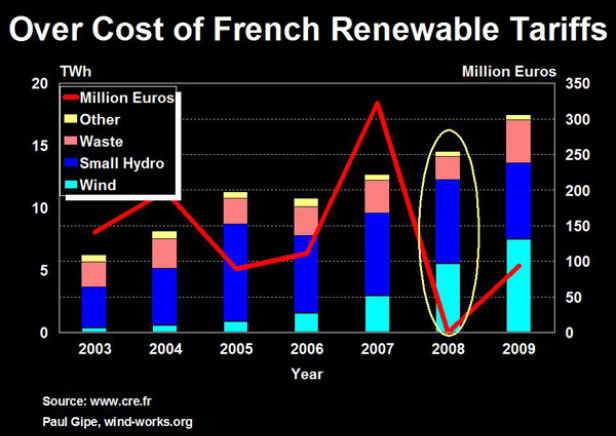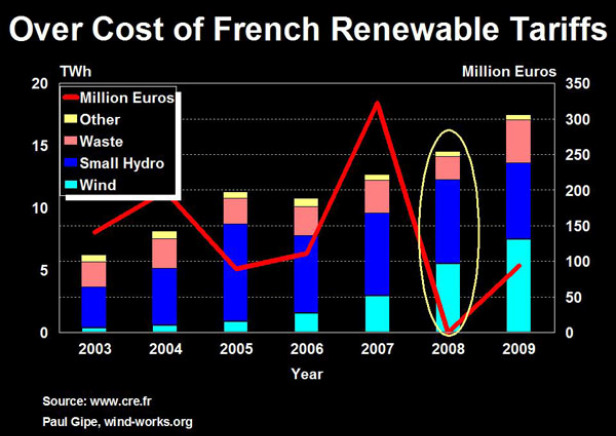Flying in the face of conventional wisdom that renewables are expensive, the cost of French feed-in tariffs for renewable energy over and above the cost of conventional fuels was negative in 2008.
French feed-in tariffs for wind, hydro, biogas, and other technologies not only did not cost money in 2008, but also saved French ratepayers five million euros ($6.4 million) through the year.
Conventional wisdom suggests that as more and more renewables are added to a utility’s generating mix, the average cost of electricity increases. Thus, as France adds more renewable energy from its program of differentiated feed-in tariffs, the cost of the program should steadily increase.
In 2008, Cécile Bordier at the French bank Caisse des Dépôts examined the cost of France’s renewable energy program. Bordier found that, on the contrary, the cost of the French program was declining as renewable generation was growing.
Generation from renewables in France increased nearly three fold from 2003 through 2009.
Bordier’s analysis illustrated the role of the “merit order effect” in France on the total cost of renewables to ratepayers. The merit order effect results when renewable generation replaces more expensive fossil-fired generation at the margin.
Previous studies in Germany, Denmark, and Spain illustrated the significant monetary benefit when renewables offset conventional generation. Bordier’s analysis was the first to specifically look at France.
The negative cost of the French program accrued in 2008 because of the dramatic rise in the price of fossil fuels that were offset by renewable generation during the year.
Renewable energy advocates have long argued that renewables are a hedge against both the rising price of fossil fuels and fossil-fuel price volatility. The French data confirms that this is indeed the case.
France uses Advanced Renewable Tariffs — a system of differentiated feed-in tariffs — to develop renewable energy at minimal cost. Differentiated feed-in tariffs allow program administrators to carefully control costs to ratepayers while meeting development targets.
The French regulatory commission publishes the cost — or savings — of the renewable program and the electricity generated by each technology, as well as the methods used in their analysis in annual reports on the Service public de l’électricité.





